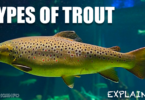Dolphins are the enigmatic creatures of the marine world, their playful nature, graceful movements, and remarkable intelligence have captivated our imagination. Beyond their friendly interaction with humans, these creatures still hide a world of mystery beneath the waves that have drawn the attention of nature enthusiasts and researchers to unveil their secrets. This article will decode strange and interesting facts about the mysterious world of dolphins.
Dolphins Decoded: 23 Strange and Interesting Facts
Dolphins have always been a subject of awe and fascination for centuries. Despite their friendliness, these creatures hide many secrets, some of which are explained below:
1. Ancient Companions
Dolphins have a rich history of interacting with humans; they have been documented helping fishermen in various parts of the world for centuries, delivering fish to nets and even alerting people about the presence of sharks.
2. Masters of Echolocation
One of the most remarkable characteristics dolphins possess is the use of echolocation. They emit sounds to create detailed mental maps of their surroundings and identify their prey with remarkable accuracy.
3. Sonic Speedsters
Dolphins are aquatic wonders that are popular for their remarkable speed and incredible agility. Dolphins can reach speeds of up to 20 miles per hour and glide gracefully through the water. Their slender bodies and powerful tails make them perfect candidates for the title of fastest ocean swimmer.
4. Brain Power
Dolphins incredibly have large brains and are highly developed, especially in the areas of socialization, problem-solving, and cognitive processing.
5. Artistic Expression
Dolphins are known for blowing bubbles and creating intricate underwater sculptures while playing with them. This behavior, often observed in captivity, indicates an artistic expression unique to this species.
6. Social Butterfly Effect
Dolphins are social creatures because they usually form tightly knit groups called pods, which consist of a few to hundreds of members. These pods engage in cooperative behaviors such as guarding, hunting, and even playing together.
7. Cultured Creatures
Like humans, dolphins exhibit different cultural behaviors in pods. These cultural differences include specific social norms, hunting techniques, and vocalizations that pass from generation to generation.
8. Recognize Themselves
One amazing fact about dolphins is their ability to see and recognize themselves in mirrors. This means a great sense of self-awareness and sensitivity shared by a few other animals, such as elephants and great apes.
9. Sleep Switch
Dolphin brains have a unique way of relaxing because they are facially sensitive, they only sleep with one side of the brain active at a time, keeping them partially alert to potential dangers.
10. Puzzle Solvers
In captivity, dolphins have shown a tendency to solve complex puzzles and tasks. They can understand as well as respond to human signals which have made them valuable candidates for psychological research and experiments.
11. Captivating Camouflage
Dolphins have amazing skin tones, and some species can change color according to their environment. This ability helps with camouflage and can also be a means of communication within the pod.
12. Playful Personalities
Dolphins are known for their playfulness and are often seen riding waves, playing with objects and even playing with each other.
13. Mystifying Migrations
Dolphins are no strangers to surprise trips because species travel incredible thousands of miles to demonstrate their resilience and adaptability to changing environmental conditions.
14. Remarkable Resilience
Dolphins have shown incredible resilience, as they heal from serious injuries such as dog bites, however, some wounds heal to near imperceptibility.
15. Perfect Prenatal Care
Female dolphins have a unique reproductive system that allows them to constantly feed their developing embryos with nutrients through a system called the uterus. This ensures that newborn dolphins have the best chance of survival.
16. Guardians of The Sea
Not only dolphins are stunning creatures but are also important indicators of the health and well-being of marine ecosystems. Their presence reflects the state of the oceans as a whole, making them important indicators of environmental well-being.
17. Social Learning
Dolphins are good at learning and teaching, helping each other to convey survival strategies and cultural practices across generations.
18. Helping Hand
In remarkable displays of compassion, dolphins have been known to help injured or suffering individuals in their species and other species.
19. Strategic Hunting
When dolphins are hunting, schools of fish often come together to form dense groups, making it easier for them to catch prey. This joint hunting strategy is a testament to their intelligence and adaptability.
20. Sleep Strategy
Dolphins exhibit a unique form of sleep called Unihemispheric slow wave sleep, where one side of their brain is awake while the other is at rest, allowing them to relax and perform basic tasks with minimal consciousness.
21. Complex Communication
Dolphins exhibit complex communication behavior because they connect by using a combination of body language, voice, and whistle. Their sophisticated networks allow them to communicate information about risk, social relationships, and even emotions.
22. Longevity
In the wild, dolphins can live up to 50 years or more, while captives tend to have short lives due to challenges in their environment.
23. Environmental Indicators
Dolphins are considered key indicators of ocean health because their presence and behavior can provide insights into the welfare of marine ecosystems as a whole.
Final Thoughts
Dolphins, with their extraordinary behavior and remarkable abilities, have captivated our hearts for a long time. From their playful nature to intricate communication techniques, these marine mammals have drawn the attention of researchers to understand their scientific importance. While unlocking these mysterious secrets, dolphins remind us of the endless beauty and complexity that lie beneath the waves.







